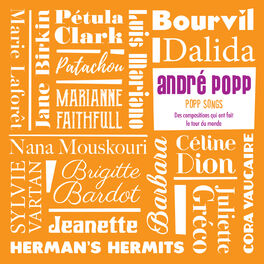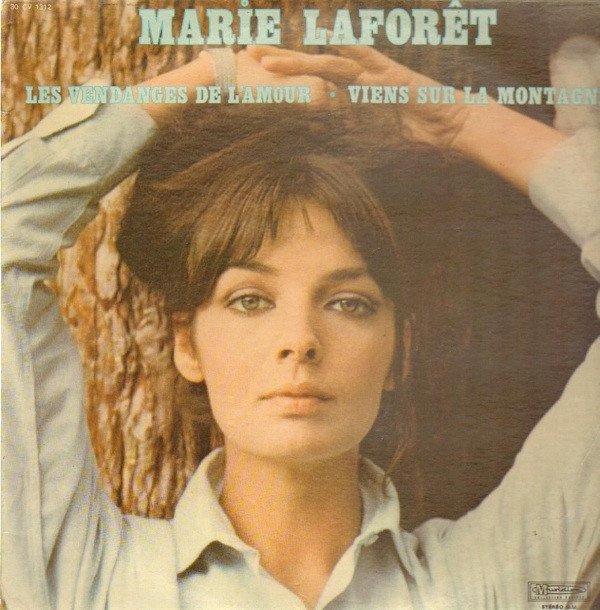

She helped popularize the Bob Dylan song "Blowin' in the Wind" in France with her 1963 interpretation. Laforêt has been fond of folk music ever since she began recording in the early 1960s. Laforêt resided in Geneva and obtained Swiss citizenship.

In September 2005 she sang once again, going on tour in France for the first time since 1972. She has performed in a number of plays in Paris over the years, acclaimed by audiences and critics alike. In the 1990s, she again continued to work as an actress, both on screen and on stage. She made a comeback, however, in 1993 with an album (her last) for which she wrote the lyrics. Some music singles were eventually released, but were not popular. In the 1980s, Marie concentrated on her acting career, appearing in a few French and Italian films. Although her most financially successful singles (Viens, Viens, a cover of a British hit, and Il a neigé sur Yesterday, a ballad about the break-up of the Beatles) were released in the 1970s, Marie progressively lost interest in her singing career, moving to Geneva, Switzerland in 1978, where she opened an art gallery and abandoned music more or less altogether. She was interested in making more personal records, but finally gave in. Her music stood out, perhaps too much for her new label CBS Records, which expected of her more upbeat, simpler songs. Laforêt worked with many important French composers,musicians and lyricists, such as André Popp and Pierre Cour, who provided her with a panoply of colorful, sophisticated orchestral arrangements, featuring dozens of musical instruments and creating a variety of sounds, sometimes almost Medieval, Rennaissance or Baroque, other times quite modern and innovative.Īt the end of the 1960s, Marie had become a rather unique figure in the French pop scene. Her melodies borrowed more from exotic folk music, especially South American and Eastern European, than from contemporary American and British pop acts. Her songs offered a more mature, poetic, tender alternative to the light, teenage yé-yé tunes charting in France at the time. In her second film, Saint Tropez Blues, accompanied by a young Jacques Higelin at the guitar, she sang the title song and immediately started releasing singles, her first hit being 1963's Les Vendanges de l'Amour. She married director Jean-Gabriel Albicocco, who cast her in some of his own works, including La Fille aux Yeux d'Or (The Girl with the Golden Eyes), based on the Balzac story, which would become her nickname. Director Louis Malle then cast the young starlet in the film he was shooting at the time, Liberté, a project he finally abandonded, making Laforêt's first appearance on screen opposite actor Alain Delon in René Clément's 1960 drama Plein Soleil.Īfter this film she became very popular and interpreted many roles in the 1960s. Her career began accidentally in 1959 when she replaced her sister at the last minute in a French radio talent contest Naissance d'une étoile and won. But I'll substitute "cooly-delivered threat to the other woman" for "cooly-delivered assertion that love is not for a woman like her".Marie Laforêt (Maïtena Marie Brigitte Doumenach, Soulac-sur-Mer, Gironde, France, 5 October 1939 – 2 November 2019) was a French-Swiss singer and actress. So my comments above don't exactly apply, but my point about the tune suiting the theme still stands, as the sense of both detachment and warning I imagined are still present lyrically. Berat has corrected me that the flirtatious woman in the song is the singer herself. *Update* - OK, so this is why I probably shouldn't have trusted my interpretation of a couple of words in the chorus translated via an online Turkish dictionary and then have run with that. Here, Gönül's coolly-delivered threat to the other woman works well with the music's ominous quality. In the original, the slightly sinister melody tempers the sweetness of the sentiment ('my love, my friend, when I dream, I dream of you') with a dash of potentially worrying obsessiveness.

#MARIE LAFORET MON AMOUR MON AMI LYRICS ENGLISH FREE#
If I have this right (feel free to correct me!), the lyrics to this version are a warning to a flirtatious woman to stay away from her man.


 0 kommentar(er)
0 kommentar(er)
